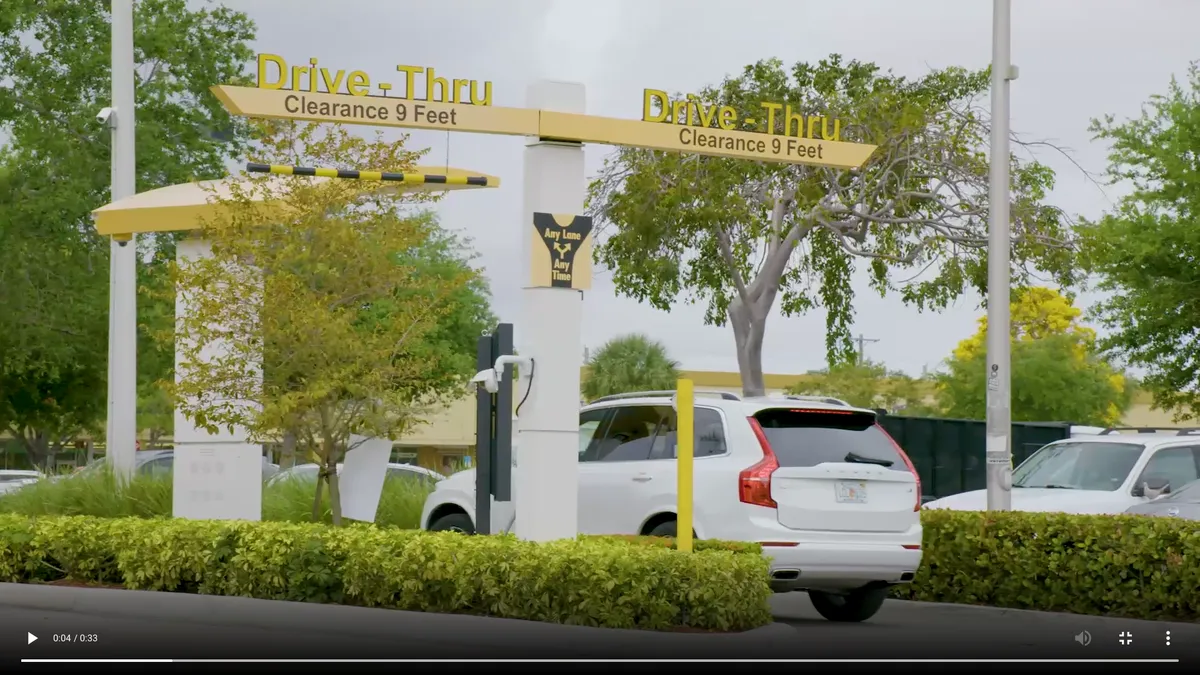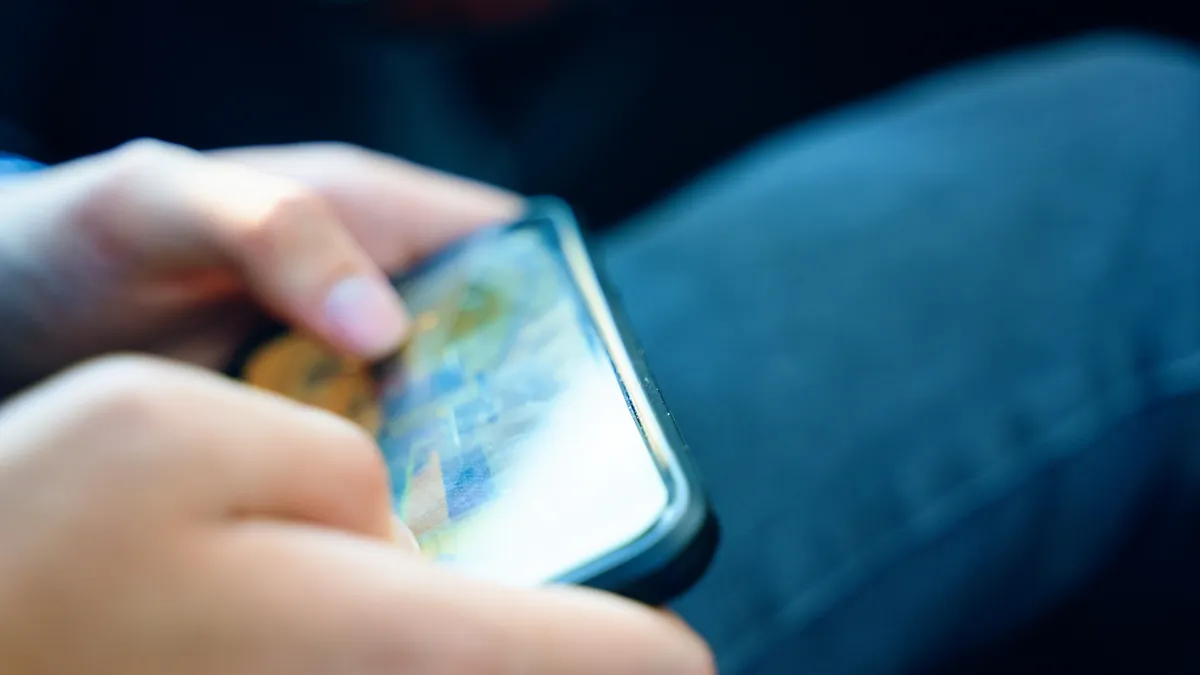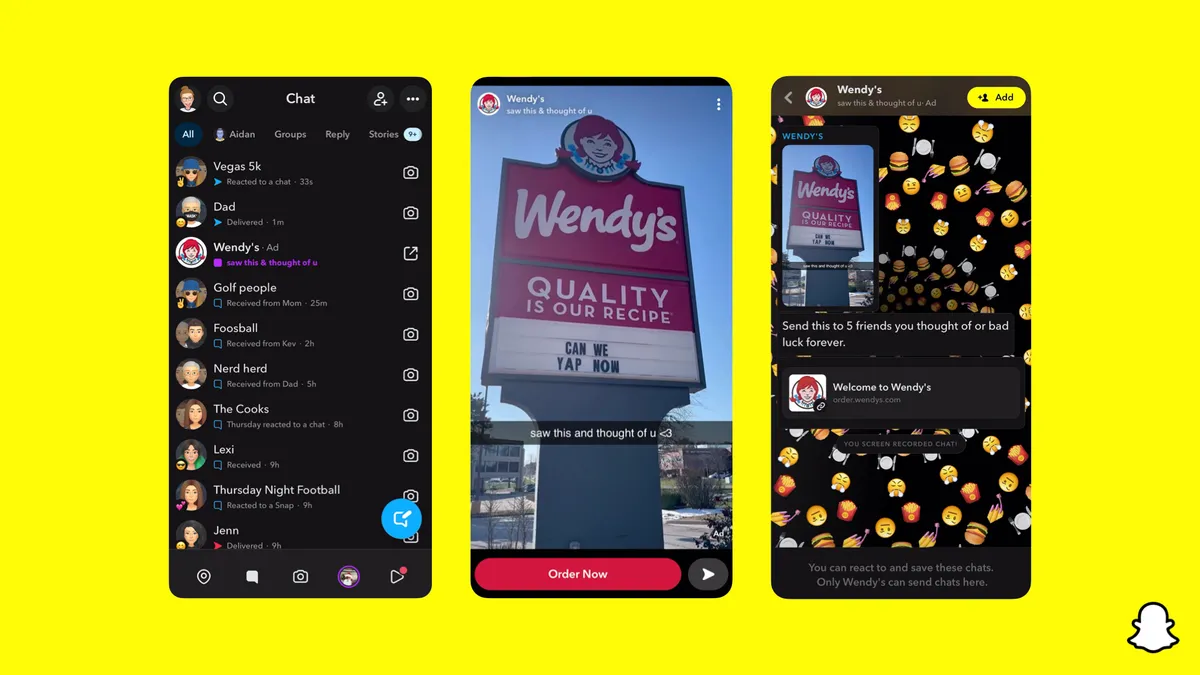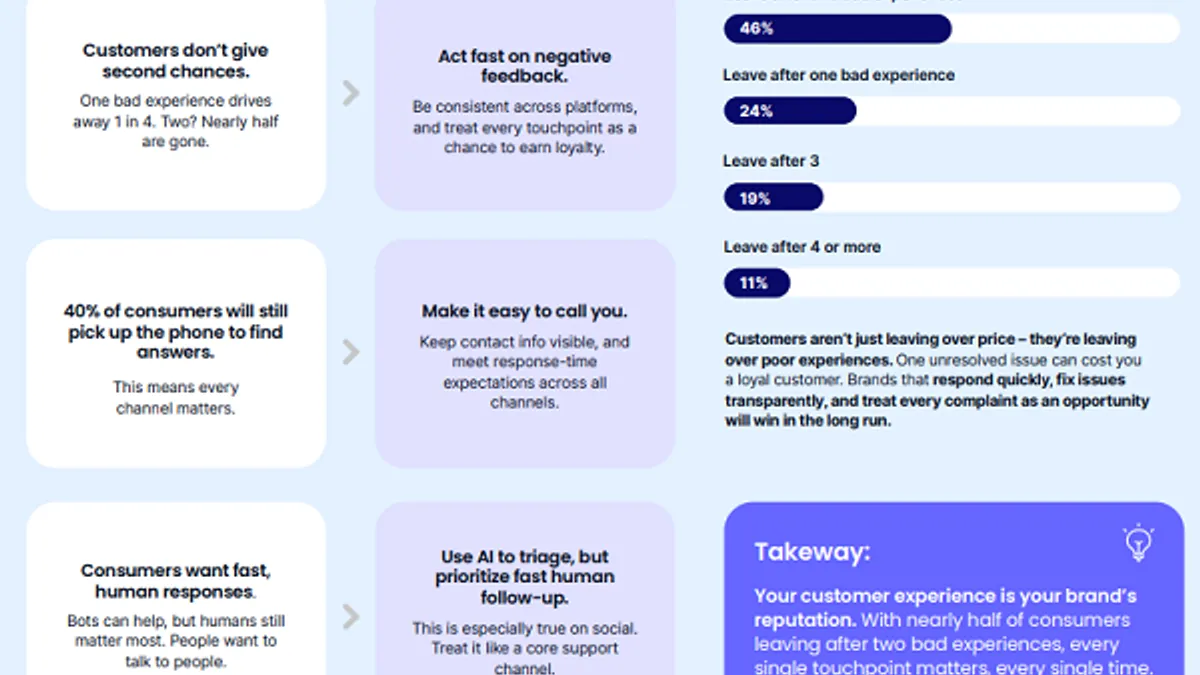Personalization remains in marketers' minds — even if its difficulties could challenge its viability as a strategy in the long term. But while more marketers struggle with how to make their campaigns reflect consumer desires, one sector leads the way in creating personalized, omnichannel experiences: quick-service restaurants (QSR).
Whether it's McDonald's tying geofenced billboards to in-app Waze ads, Burger King using dynamic creative to drive daypart decisions, or Dunkin' utilizing AI bots to deliver National Doughnut Day treats, the last few years have been rife with QSRs using cutting-edge marketing technology to reach young, tech-savvy consumers. These initiatives are what consumers want, as 71% say receiving an ad from a QSR that is tailored to them gives them a more favorable opinion of that brand, according to AdTheorent's Dining Trends Report.
On personalization, the gap between consumer demands and the reality marketers are delivering is widening, but the lessons QSRs have learned could be helpful to brands across the industry — and point to what's to come in 2020 and beyond.
Why QSRs are leading the way
QSRs are leading the pack in this space due to the very nature of their category of products and consumers.
"By definition, everything is quick [for QSRs]," Dennis Becker, chairman and CEO of mobile marketing provider Mobivity, told Marketing Dive. "Attention spans are quick and consumers are fleeting. Because of that they need to be reached in a myriad of various ways because the purchase decision is moment by moment."
Consider someone planning Thursday's lunch, for example. On Monday, an email offer or online ad could be influential. But if it's 11:30 a.m. on Thursday, those types of communications might not break through; perhaps a text is better at that moment.
"With guests being so transient across various channels, I think it has burdened the QSR marketer in having to be omnichannel," Becker said.
"When you come in and the brand already recognizes you, knows your preferences and can communicate on a one-to-one basis, that's a great user experience."

Oz Etzioni
Clinch, CEO and co-founder
As for challenges of the QSR product itself, it isn't a laptop or a car, where the purchase requires a memorable online experience backed up by rich media content once every few years. Instead, QSRs are in a daily battle for "share of stomach."
"The retention game is a lot more frenetic and higher-stakes because the selection spectrum is so much more vast," Becker said.
Along with challenges, the business model of QSRs make them well suited for offering personalized experiences.
"When you come in and the brand already recognizes you, knows your preferences and can communicate on a one-to-one basis, that's a great user experience," Oz Etzioni, CEO of personalization platform Clinch, told Marketing Dive. "The brands that are doing it in the most seamless and innovative ways are leading the charge and are the ones that will survive the evolution of retail and QSR."
Marketing ecosystem evolution
Whether via cable and broadcast operators, or the Facebook-Google duopoly, brands have always required other companies to help them reach the right consumers at the right time. But with proper personalization technology solutions, brands can sidestep third-party intermediaries.
"Facebook personalizes ads based on Facebook's data and knowledge of the guest, using that to drive up the premium on that ad impression in the marketplace," Becker explained. "With next-gen martech, brands now have the ability to go one-to-one with the consumer and create a direct engagement channel that they can personalize and more accurately measure and optimize over time."
Consumer data is key to this type one-to-one personalization.
"2019 was mostly the year everybody was racing to get as much data as possible, to connect to all different data sources, try to understand what data they need and what they're going to do with it," Clinch's Etzioni said. "2020 is really the execution year… Closing the loop of every provider and every channel to better understand what resonates and build user data in a smarter way [will be key]."
Acquisitions could increase
To execute around data properly, achieve these one-to-one relationships and deliver omnichannel experiences, brands might have to create their own technology stacks. This need was made concrete earlier this year, when McDonald's acquired Dynamic Yield for $300 million — its largest acquisition since buying Boston Market in 1999 — to improve and personalize the drive-thru experience.
"If [brands] take their owned media and one-to-one channels where they have greater control, they can move optimization of market budgets much faster than continuously being at the mercy of third-party intermediaries," Becker said.
"Back-filling in technology is going to be an act of survival, and not just another line item on the balance sheet or in the budget."

Dennis Becker
Mobivity, CEO and chairman
Deals like McDonald's Dynamic Yield buy — and Starbucks' partnership with and investment in Brightloom to create a standalone consumer engagement platform — could be the future for personalization beyond the QSR space.
"There will be so many brick-and-mortars that have to go technology first [because] technology will be a strategic advantage," Becker said. "Back-filling in technology is going to be an act of survival, and not just another line item on the balance sheet or in the budget."
Becker expects some "big acquisitions" of personalization technology from surprising buyers in the next few years. He even uses his own firm, Mobivity, as an example.
"When I started this company, they'd always ask, 'Who buys you?' Well, it could be any of these technology companies, Microsoft or Google or whatever," Becker said. "Now, it literally could be Taco Bell."























